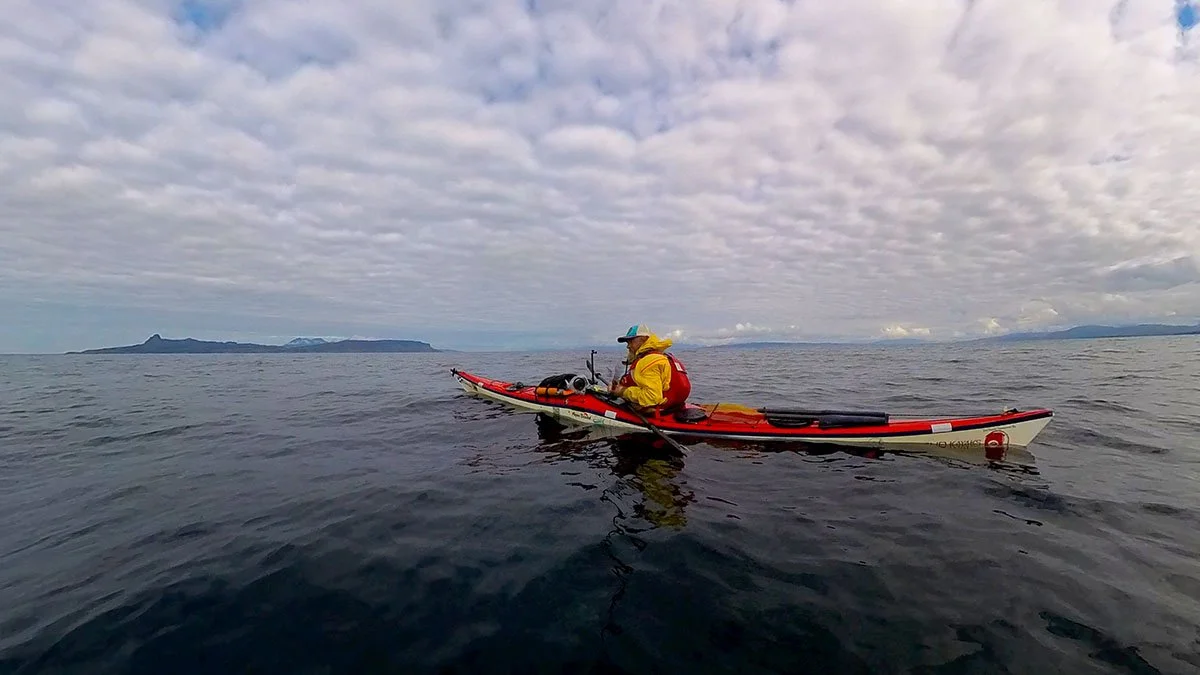Walking Into Everyday Life. Lessons From a Three-Month Expedition
/How My Walking Adventure Continues to Shape My Daily Routine and My Recovery
So Much Learning To Pack into my Rcuksack
Three months on foot, traversing new and familiar Scottish landscapes, meeting the weather head-on and learning the rhythm of the open path, a walking expedition of such length becomes more than just a physical challenge; it turns into a profound learning space for my life. As I anticipated I would, returning home, I discovered the lessons I picked up were not only valuable for daily living, but fundamental to my ongoing recovery from clinical depression. Here’s my take on transferring that learning both into my everyday routine and my journey toward mental wellness.
The Four Corners Expedition was a journey defined by both its ambition and its simplicity. Setting out from the windswept cliffs of the Mull of Galloway, I set my sights on reaching the cardinal points of mainland Scotland, south, east, west, and north, including a purposeful detour to the nation’s geographical centre. Over the course of three months, every step of my 999.68-mile trek revealed new facets of the Scottish landscape and of myself, as I moved steadily from one iconic edge of the country to another, piecing together a personally concocted route which celebrated the wild, varied heart of Scotland and her people.
Transfer of learning
My process of reflecting on my outdoor experiences is heavily influenced by my years as an Outward Bound instructor in Wales, Cumbria, Lesotho, South Africa and Zimbabwe. Returning from an Outward Bound course marks a pivotal moment in a student’s journey. The wild landscapes, physical challenges, and intense group experiences will have shaped new skills and perspectives. The true test, however, lies in what way these lessons are woven into their everyday life. The process of transfer is neither automatic nor instantaneous; it is a conscious, ongoing effort to translate learning from the intensive course into personal growth and positive change back home.
The initial step in transfer is recognising the changes that have occurred. For many students, the course builds confidence, resilience, and self-awareness through direct, sometimes uncomfortable, challenges. Journaling, discussing experiences with peers or instructors, and reflecting on achievements help students identify the strengths they’ve gained, such as perseverance during a tough hike or effective communication when sailing a dipping lug cutter.
Once home, students face the familiar temptations of routine and comfort, which may dull the memory of hard-won insights. Transfer requires intentionality. Students must ask themselves, “How did I handle adversity outdoors? How can I use those same skills in my academic work, personal relationships, or stressful situations?” Creating concrete connections, such as setting goals, establishing regular practices like mindfulness, or recalling a personal mantra used on the course, helps bridge the gap between outdoor learning and daily challenges.
Just as on the course, the transfer of learning is not a linear path. Students may encounter setbacks through old habits, self-doubt, or external pressures. As it was true for them during the course, resilience, patience, and self-compassion are key. Recognising that progress is made one step at a time, and that each effort to apply course learning is significant, helps maintain motivation. Celebrating small victories, from managing stress more calmly to reaching out for help, reinforces the value of the lessons learned. Ultimately, the transfer of learning from an Outward Bound course is about more than recalling memories; it is about transforming those memories into habits and values that last. By intentionally reflecting, making connections, seeking support, and celebrating progress, students ensure that the adventure continues and that each lesson learned on the trail, becomes a stepping stone to growth at home and beyond.
All of this is true for me.
During my expedition, my life reduced to the essentials. Each possession had a clear purpose, and I realised how little I truly needed to feel content. This simplicity became a powerful tool in my recovery from depression, helping me reduce the chance of becoming overwhelmed by clutter, physical or mental. By paring down my ecosystem and schedule, I created personal space for calm and clarity, which can be especially nurturing during difficult periods.
The rhythm of the trail, wake, pack, walk, eat, rest, repeat, provided me with a simple and distinct framework which provided meaning and stability to each day. As someone recovering from clinical depression, maintaining a routine has become essential. It gives me small goals to look forward to and creates a firm foundation when my motivation or energy is low. Mini rituals, like packing my rucksack or making camp, are small victories which build momentum and support emotional health.
Walking for three months, I encountered all forms of weather, suffered blisters, and experienced the frustration of unexpected detours. Each challenge taught me to adapt and persist, even when things felt insurmountable. In my mental health journey, I apply this same endurance. Setbacks happen, but I remind myself, just as on the trail, my progress is made one step at a time. Navigating depression’s ups and downs, I draw on this resilience, knowing that my headway, however protracted, is still forward.
The Four Corners journey demanded I be present. There was no rush, only the here and now. The adopted practice of mindfulness has been transformative in managing my depression, helping me notice and appreciate small joys; the comfort of a warm drink in the tent, the crepuscular sunlight through the clouds, the sound of an unbridled crystal clear stream tumbling down the hill, or the heavy scent of the beautiful purple heather. Being present keeps me grounded when negative thoughts threaten to spiral me into a vortex of despair and brings moments of genuine peace into my day.
Long days of walking taught me to honour my body’s need for rest. I learned that pushing too hard led to exhaustion, not achievement. In my recovery, I embrace rest as an essential part of healing. Allowing myself to pause, breathe, and recover without guilt, has helped reduce burnout and given me the strength to continue through tough days.
On the road, strangers became friends as we shared stories and support. Feeling isolated is common in depression, but I’m carrying forward the lesson that reaching out, even for a brief chat or a shared laugh, can lighten the heaviest mood. I make a conscious effort to nurture relationships and seek connection, knowing that I don’t have to walk this path alone.
After months away, simple comforts such as a real bed, a hot shower, Kerry’s familiar and joyfully smiling face, felt like treasures. Gratitude, I’ve found, is a powerful counter to depression. Focusing on the small things which bring warmth and stability, even on the roughest days, has helped shift my perspective and brought genuine moments of happiness.
My walking expedition may long be over, but the lessons I learned are now woven into my recovery and my daily life. Simplicity, routine, resilience, mindfulness, rest, connection, and gratitude. These are simply not souvenirs from the expedition, but lifelines as I journey toward better mental health. If the adventure has taught me anything, it’s that each step, no matter how small, is worth celebrating on the way to my continued healing.


